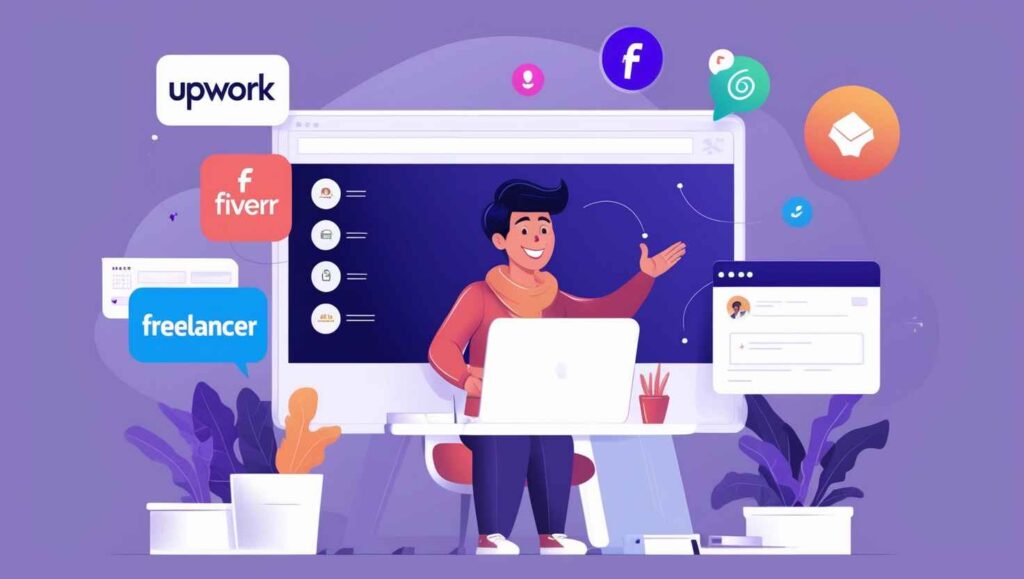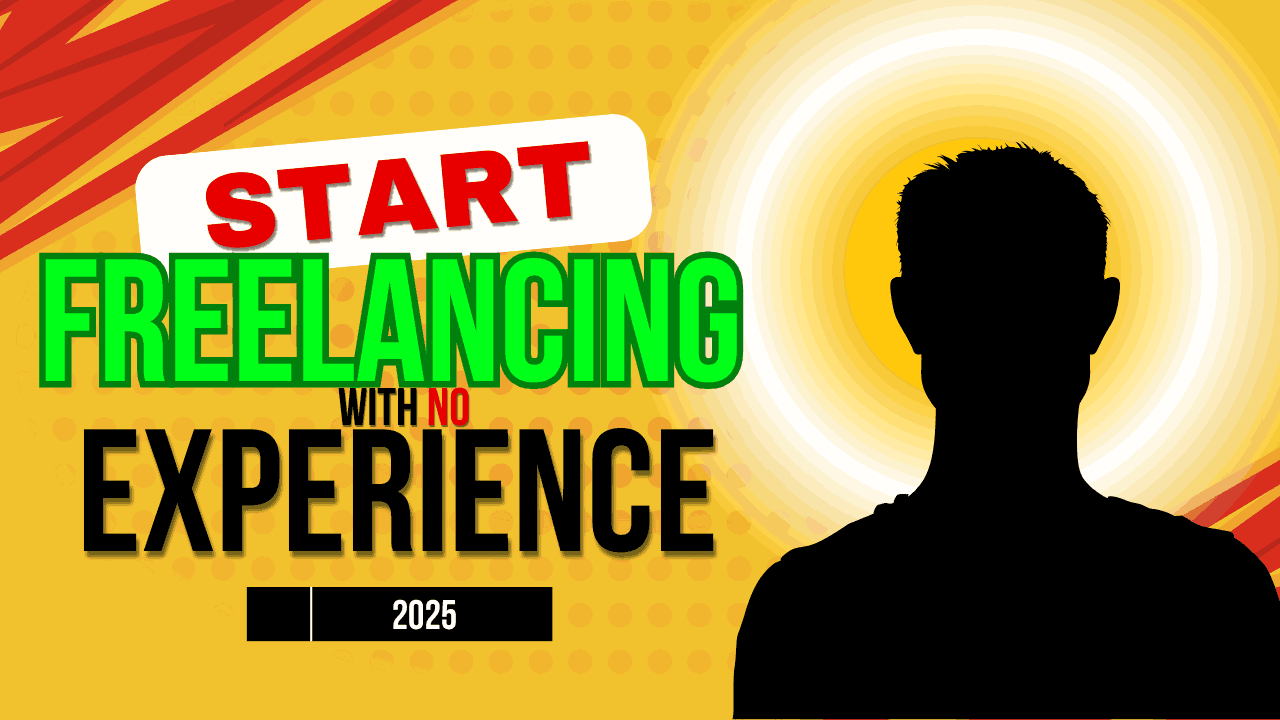Introduction
Starting freelancing with no prior experience might sound intimidating, but it’s completely doable. Many successful freelancers began their journey without professional expertise, relying instead on determination, willingness to learn, and persistence. If you’re ready to dive into freelancing, here’s how you can start and thrive from scratch.

Why Consider Freelancing?
Freelancing offers numerous advantages. You can work from anywhere, set your schedule, and choose projects that excite you. However, it’s not without challenges—building a reputation, finding clients, and managing inconsistent income are just a few hurdles. But with the right approach, you can overcome them.
Step 1: Assess Your Current Skills

Even if you think you lack experience, you probably have some skills that are valuable. The first step is identifying what you’re good at.
Self-Assessment Tips
- Write down your hobbies and interests.
- Think about past tasks you’ve done well, whether in school, previous jobs, or personal projects.
- Ask friends or family what they think your strengths are.
Common Beginner-Friendly Skills
- Writing (articles, blogs, social media posts)
- Basic graphic design (using tools like Canva)
- Data entry or virtual assistance
- Social media management
- Simple coding or website updates
If you’re not sure about your skills, don’t worry. Freelancing is also a fantastic way to learn as you go.
Step 2: Choose a Niche

To stand out in the freelancing market, focus on a specific area of work. Choosing a niche makes it easier to market yourself and appeal to the right clients.
Finding Your Niche
- Interest: What do you enjoy doing? Working on tasks you like will keep you motivated.
- Market Demand: Research what clients are actively looking for.
- Ease of Entry: Start with simple tasks that don’t require advanced expertise. For instance, writing blog posts is easier to begin than technical writing.
Step 3: Create a Portfolio
A portfolio is crucial for showcasing your abilities. Even if you’ve never worked professionally, you can build a portfolio with sample projects.
How to Build a Portfolio Without Experience
- Create mock projects relevant to your niche. For example, design a fake logo, write a sample article, or build a basic website.
- Offer free or discounted work to friends, family, or local businesses. These real-life examples add credibility to your portfolio.
- Highlight your personal projects, like a blog, an Instagram page you’ve grown, or a hobby that showcases your skills.
Online tools like Behance, Medium, or GitHub can help you showcase your portfolio professionally.
Step 4: Set Up Your Freelance Presence
Creating a strong online presence will help you attract clients. Here are key steps to take:
1. Build a LinkedIn Profile
LinkedIn is invaluable for freelancers. Optimize your profile to highlight your skills, services, and portfolio. Connect with professionals in your field to expand your network.
2. Create a Website
A simple website acts as your digital business card. Include an “About Me” page, your services, and a way for clients to contact you. Platforms like Wix, WordPress, or Squarespace make it easy to build professional websites.
3. Leverage Social Media
Use platforms like Instagram, Twitter, or Facebook to showcase your work. Join relevant online communities to connect with potential clients.
Step 5: Start Finding Clients

Finding your first client is often the toughest part. Persistence is key.
Best Platforms for Beginners
- Upwork: Start with small gigs to build reviews.
- Fiverr: Create packages for simple services.
- Freelancer: Bid on projects within your skillset.
- PeoplePerHour: Ideal for entry-level tasks.
Other Ways to Find Clients
- Cold Outreach: Email small businesses or entrepreneurs, offering your services and explaining how you can help them.
- Referrals: Let your network know you’re available for freelance work.
- Job Boards: Check platforms like We Work Remotely or ProBlogger for freelance opportunities.
Step 6: Hone Your Craft
Freelancing is a journey of continuous improvement. The more you refine your skills, the more valuable you become.
Ways to Learn
- Take free courses on platforms like Coursera, HubSpot Academy, or YouTube.
- Follow industry blogs and tutorials.
- Practice daily and challenge yourself with new projects.
Step 7: Set Your Rates and Goals

Pricing your services as a beginner can be tricky. Start with competitive rates to attract clients, then increase them as you gain experience.
Tips for Setting Rates
- Research the standard rates for your niche.
- Charge per hour or per project, depending on the task.
- Don’t undersell yourself—you deserve fair compensation for your work.
Goal-Setting for Success
Set realistic goals to keep yourself motivated. For example:
- Secure your first paid project within 30 days.
- Complete five projects within three months.
- Achieve consistent monthly income by the end of the year.
if you want to know How to Create a Professional Fiverr Gig in 2025
FAQs
Q1: Can I freelance without any qualifications?
Yes! Freelancing is skill-based, not degree-based. Many clients care more about results than certifications.
Q2: How do I handle rejections?
Rejections are part of freelancing. Treat them as learning opportunities and keep improving your skills and pitches.
Q3: What tools should I use to get started?
Some beginner-friendly tools include:
- Canva for design work
- Grammarly for writing
- Slack and Zoom for communication
Q4: How long does it take to succeed?

Success varies. Some freelancers find work in weeks, while others take months. Consistency and persistence are key.
Conclusion
Starting freelancing with no experience may feel challenging, but it’s entirely possible with the right mindset and actions. By identifying your skills, building a strong portfolio, and consistently marketing yourself, you can carve out a successful freelancing career. The road might not be easy, but every small step brings you closer to your goals. Stay patient, stay persistent, and success will follow.
